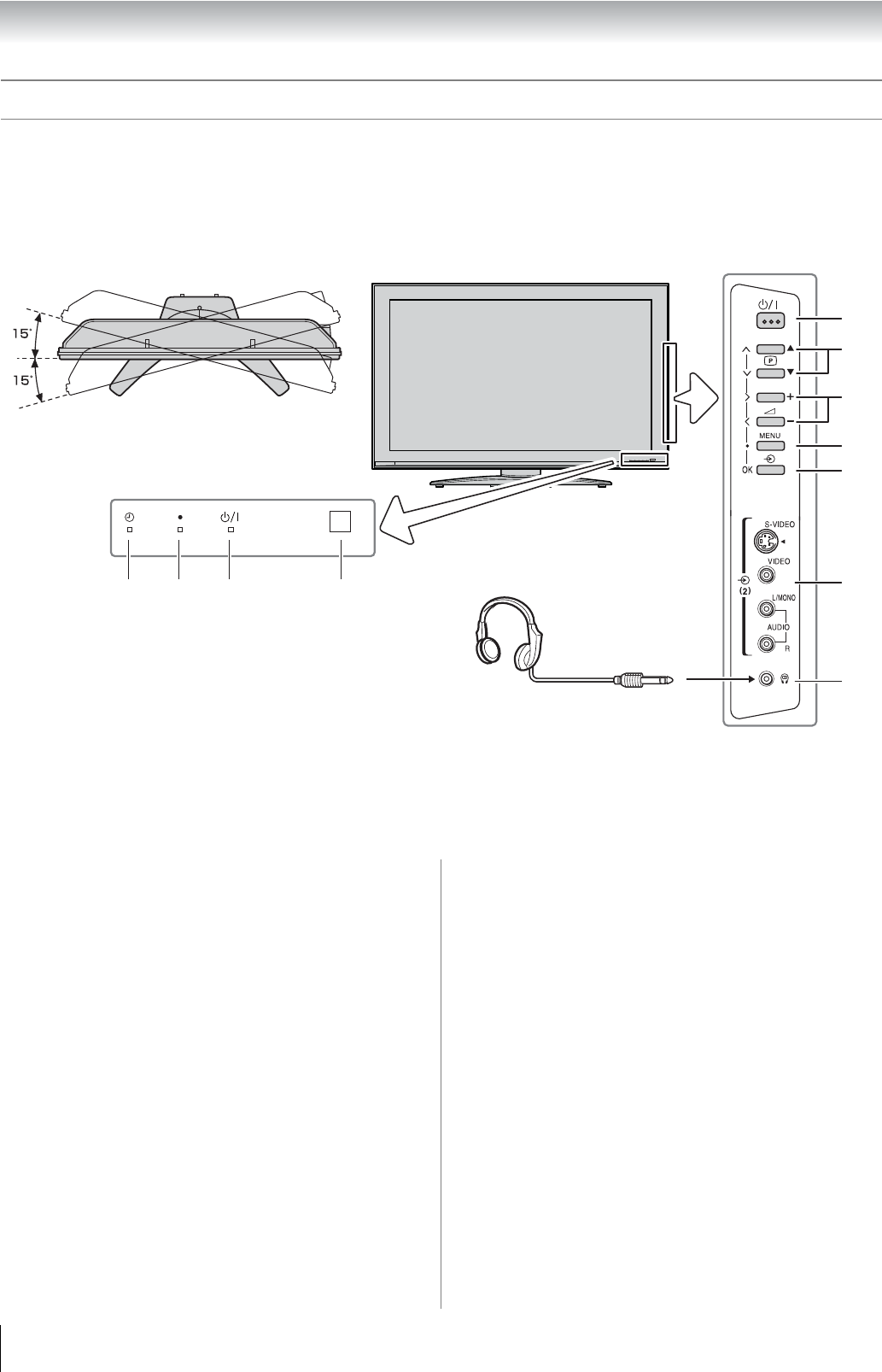
8
Getting started
TV front and side panel controls
• You can operate your TV using the buttons on the side panel or the remote control. The back and side of the panel provide the
terminal connections to connect other equipment to your TV (- “Connecting your TV” pages 33 - 37).
• For the use of each control, see the pages in brackets.
1 3 4 2
11
10
6
5
7
8
9
TV top view TV front view
Right side view
You can swivel the TV screen.
(Except 52X3000A, 57X3000A)
Swivel angle: 15 degrees to left and right.
Headphones
(Not supplied)
1 4 (Alarm Timer LED) — Timer indicator (- page 25).
2 ● (DTV timer LED) — Digital TV timer Recording
Indicator (- page 24).
3 ! (Power LED) — Power indicator (- page 11).
4 (Remote sensor) — Point the remote control toward
this remote sensor (- page 7).
5 ! (Power on/Standby) — Press to turn the TV on/
standby (-page 11).
6 pBb (Program position) — When no menu is on-
screen, these buttons select the program position.
(- page 15).
Uu (MENU up/down) — When a Analog TV menu is
on-screen, these buttons function as up/down menu
navigation buttons (- page 12).
7 2 – + (Volume) — When no menu is on-screen, these
buttons adjust the volume level (- page 10).
I i (MENU left/right) — When a Analog TV menu is on-
screen, these buttons function as left/right menu
navigation buttons or adjust settings (- page 12).
8 MENU — Press to access the TV SETUP menu
(- page 12).
9 o (Input source selection) — When no menu is on-
screen, this button selects the input source (- page 25).
OK — When a Analog TV menu is on-screen, this button
functions as the next menu navigation button (- page
12, 25).
10 o (2) (Video 2 input terminals) — Optional S-video
or standard video and standard audio inputs (- page 35).
11 D (Headphone jack)
— For use with headphones.
Note:
When the Headphone jack is being used, the sound from
all speakers will be muted, and normal sound will be
output to the headphones only.


















